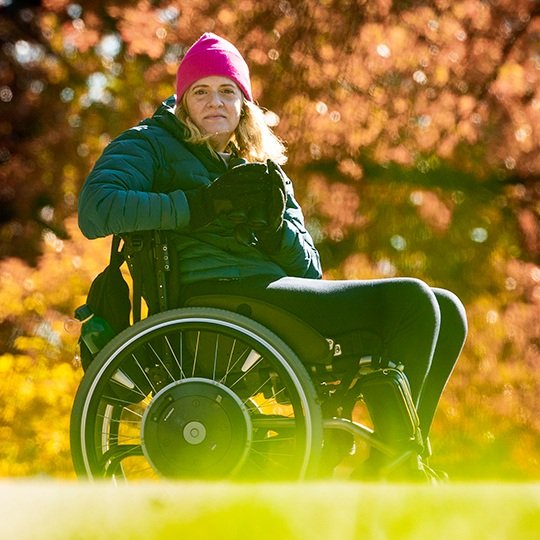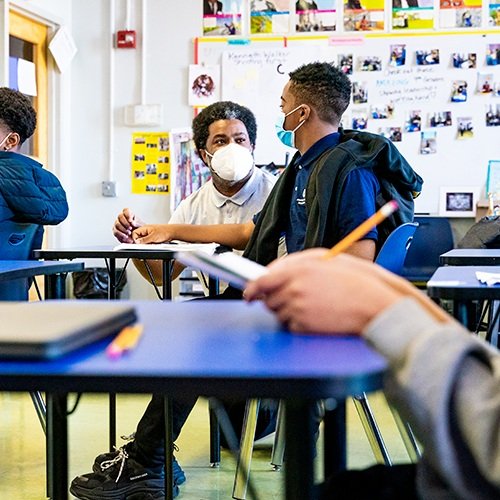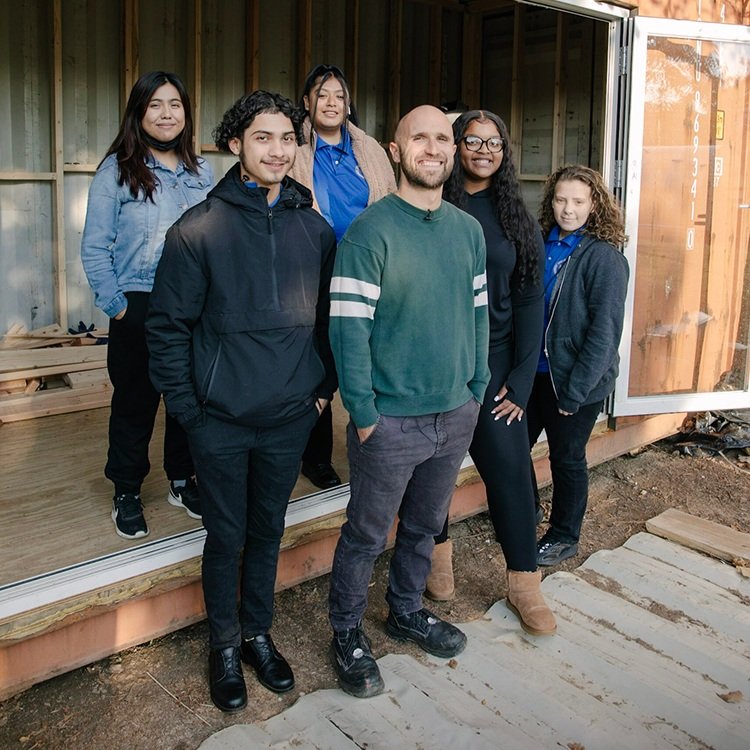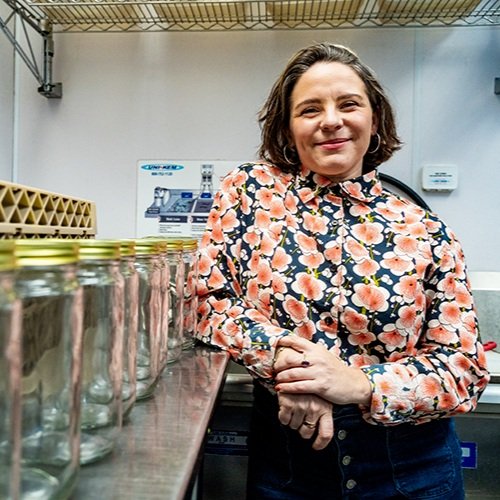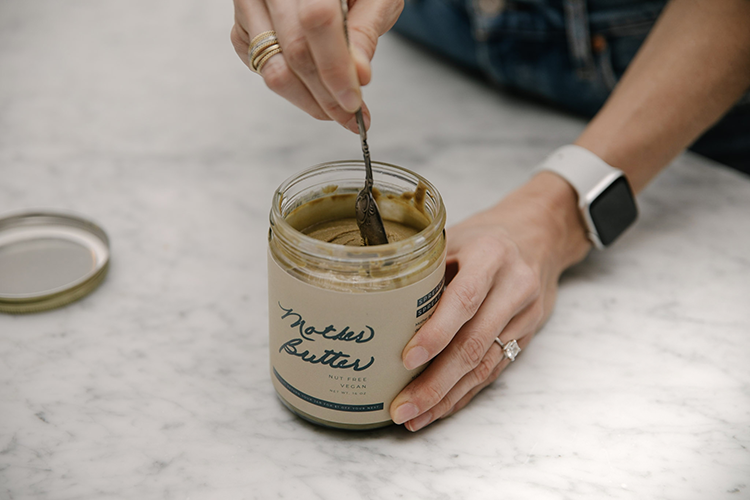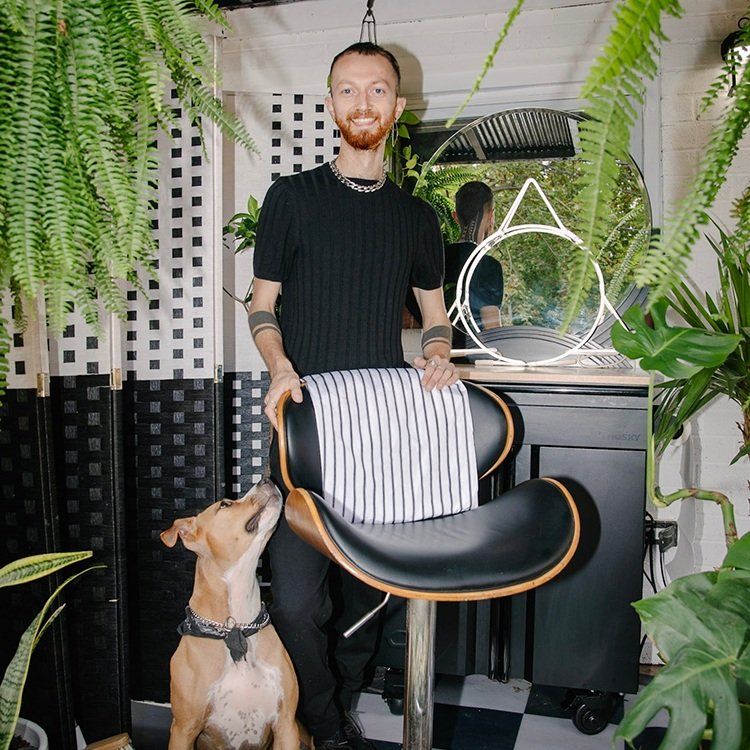Tapeta Mayson, Philadelphia’s 2020-2021 poet laureate, knows that residents of Germantown can have mixed feelings about water. The area is susceptible to flooding during heavy rains and the loss and displacement that sometimes comes as a result.
A native of Liberia who grew up in North Philly and Germantown, Mayson—in addition to being a poet—is also an artist, a nonprofit administrator, a community mental health agency chief program officer and a licensed clinical social worker.
As a Germantown resident, she felt drawn to lead poetry workshops for the Philadelphia Water Department’s Wingo-WHAT? program earlier this year. (“WHAT” stands for Water, History, Arts Activation, Transformation.)
The workshops aimed to help Germantown residents connect their experiences with water and flooding while learning about the history of the Wingohocking Creek—a once-major tributary of Frankford Creek, which flows into the Delaware River—as well as flooding resources.
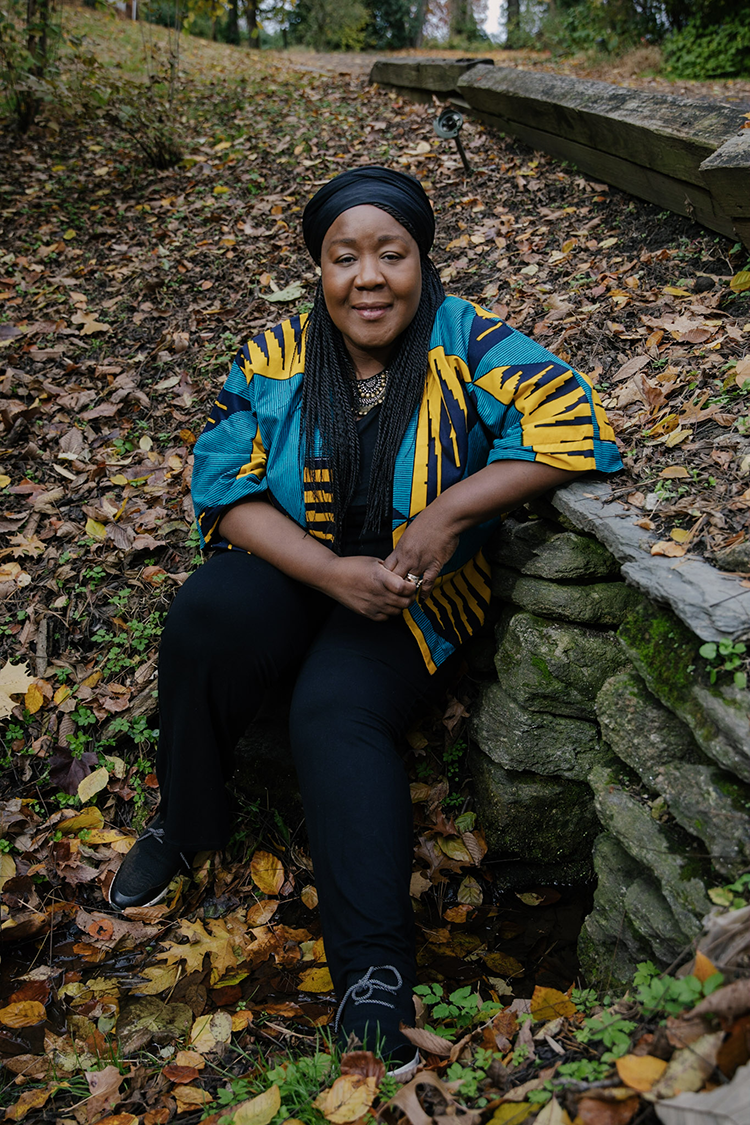
The 21 miles of the Wingohocking and its tributaries were enclosed in sewers between 1870 and 1928, creating a system that drains nine square miles under Germantown, Mount Airy, Logan and Juniata Park. After the system was put in place, flooding became a regular issue for surrounding residents beginning in the 1920s.
Still, Mayson’s poetry workshops encouraged residents to process water in totality.
“I said, ‘Tell me about water. How have you experienced it in a way that was meaningful to you? How was it beautiful to you?’” she explains. “And then we got into, ‘What about water and its effect on the environment troubles you right now?’”
This interview has been edited for length, clarity and style.
How did you find poetry?
I would say that poetry found me. I know it sounds kind of cliché when people say that, but as a writer it was something that just helped me be able to express my emotions and all the things that I was going through as a young woman growing up in the world.
I’ve been writing poetry since I was young, when I was in late elementary school through high school. I did not call myself a poet for a very long time, but I started publicly reading in my twenties while I was in college at Temple.
And what kinds of topics do you usually write about?
A lot of my work is concerned with amplifying or really enlarging platforms where voices are marginalized or not heard. I’ve worked a lot on immigrant issues and how they impact people, particularly people of color, particularly Black people. I write about justice. I write about gentrification. I write about love and also about community.
So what interested you about the opportunity to work with the Water Department on Wingo-WHAT?
One, the fact that the utility company was looking for an artist to work with them and share in the experience of educating and engaging the public. The thing that drew me in the most was that they really were focused on finding somebody who had a deeply rooted community engagement practice. That’s my work. It has always been like, “How do I make poetry accessible?” I am known for doing workshops in community venues everywhere from neighborhood blocks to institutions to homeless shelters.
Were you already kind of in the know about the water system and the Wingohocking Creek?
I was aware of flooding. I was also really aware of littering and how that impacts the watershed and water systems. That’s a very big thing to me. I’ve been involved in a lot of community cleanup work and just civic work, so I knew about that. But I did not know the real history of the Wingohocking and the depth of that history.
Would you be able to summarize the history of the Wingohocking?
The Water Department provided the education at these events. But from what I understand, the Wingohocking was at one point in our city a series of open creeks.
Our understanding is that, at some point, people began using it for litter, almost like an open sewer system, which was a health hazard. So at the time they decided that they would close these creeks, cover them up. But now, when it rains heavily or there’s a flash flood situation, there’s not enough room to hold the water and the sewer overflows. That contributes to the flooding that impacts Germantown, along with other things like not cleaning our water system’s drains, which can impede the flow of the water to the sewer, especially if the water is coming quickly.
What were the reactions of the Germantown community members who showed up to these workshops to this history?
I did a number of workshops in different places, so we got different reactions. There were a couple at Awbury Arboretum, I did one at the Coleman Library and one at the intersection of Crittenden and Haines streets.
The responses were overwhelmingly positive. Especially when the participants were children and families. Parents said to me that they thought this was really a unique way to get kids interested in the environment.
I also added musicians to the project, Monette Sudler and Karen Smith, and they really helped lift the project and help the audience enter into it a lot easier.
When we did the workshop at the library, my focus there was on using Bessie Smith’s “Backwater Blues” as sort of the foundation for writing blues poems about flooding.
It was right after Hurricane Ida. That was a song Bessie Smith wrote in response to a flooding event that had happened in her community in the early 1900s that really destroyed a large number of African American people’s land and their lives.
We cried in that workshop. Well, I cried. We had residents guided to write the blues poems, and they were writing about their flooding experiences and about the impact of climate change. One woman actually got up and performed her blues poem with the band, dancing. It was just so beautiful, but it was still really sad, you know?
It seems very empowering for residents if they’re able to engage on a personal level. What kinds of other experiences did they bring up surrounding water?
They brought up their experiences with flooding mostly. Some of the workshops captured the direct experience with flooding and what it meant for them. I remember a woman speaking about all her family memories just going and losing those memories it took years to compile—wedding photos and all these things that had just been destroyed.
But I also want t
o talk about the balance here. One of the exercises that I do even before we get into flooding and climate change and all these things—I ask them about their first experience with water. We read poems where water is celebrated. We read the Lucille Clifton poem “blessing the boats.” People love that poem. Then I asked them to share their first water memory in a five-line poem.
You’re hearing people talking about being allowed to play out in the rain. Having a lake in the area where they grew up in. Going swimming at the public pool. Conjuring up all these images of water that’s beautiful.
And then by the time we enter into how flooding and things like that impact them, I feel like there’s more of a balance. It wasn’t just focused on: “Tell me about the flooding. What happened to you? What did you lose?”
Have you written about water before this?
My poet laureate project is called the Healing Verse Philly Poetry Line, so I talk a lot about healing. For me, healing is synonymous, at least sometimes, with water. So while I haven’t written directly about water, I reference it a lot, I reference cleansing. But I don’t have a specific poem about it outside of what we created in the workshop.
It sounds like there are so many different things that water can mean to you.
Yeah. This is such an extraordinary project because I even got to explore my own water memories and explore different ways to engage people around that. Water is such a fluid topic and you can do so much.
Did these workshops shift your perspective about how you see the city’s waterways or the city’s water issues?
It made me more of an advocate, even more so in an environmental sense. It also gave me a greater level of respect for the Water Department and the work it does beyond just providing us water. I learned so much about what they do educationally.
Do you think having led these events will influence your poetic works moving forward?
It will influence my work a lot more. The way that the community was thinking about flooding, I want to explore that. This whole idea of loss and what happens in these situations, that’s going to show up in my writing. I want to be able to really capture these sorts of stories through poetry.


